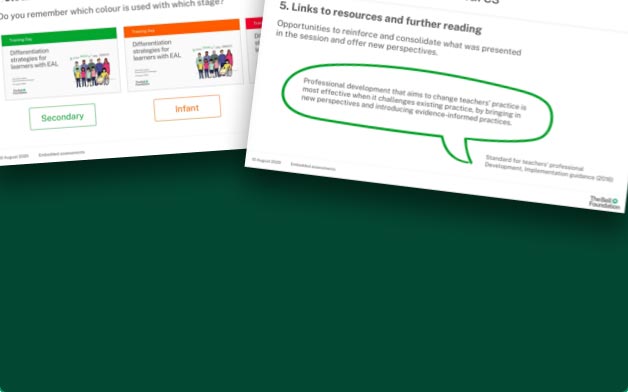A sustainable approach to welcoming refugee and asylum-seeking children
The Bell Foundation has published recommendations which set out how schools can build sustainable provision for refugee and asylum-seeking children
On 24 February 2022, Russia’s invasion of Ukraine sparked the largest population movement in Europe since World War 2. Those seeking sanctuary from Ukraine, as well as those from Afghanistan, Hong Kong, Syria and other countries, include many children whose education will have been interrupted.
“If a child is seeking refuge or has refugee status, Governments must provide them with appropriate protection and assistance to help them enjoy all the rights in the Convention. Governments must help refugee children who are separated from their parents to be reunited with them.” Article 22 UN Convention on the Rights of the Child (Refugee Children).
Evidence shows that new refugee and asylum-seeking learners can be an asset to their school. They extend aspirations in the broader school body and help develop compassion and greater cultural knowledge and awareness across the school community. Refugee and asylum-seeking learners also have assets: they have rich linguistic resources, life and learning experience, and they create opportunities for schools to grow into a dynamic multilingual community. However, research shows that refugee children’s previous experiences and reasons for fleeing their home can affect their wellbeing and education in the UK (Gladwell and Chetwynd 2018).
″...Look at all the things that I am capable of, and think of all the things you could call me - a student a, lover of literature, a budding architect, a friend, a symbol of hope even, but what am I called? A refugee.” (Refugee Boy – Benjamin Zephaniah).
“Although some schools have experience of welcoming and empowering refugee and asylum-seeking children through providing tailored support and education, for other schools this will be the first time. Many schools have contacted us requesting support and guidance on how to develop and embed appropriate systems, classroom practices and staff training to ensure both the academic and wellbeing needs of refugee learners are fully met. It was clear from these contacts that many schools had little prior knowledge, experience and skills, and limited provision, systems and processes in place. What was also clear was the lack of information and clarity on what funding was available, who is entitled to this funding, and how it is being or could be spent.” Diana Sutton, Director, The Bell Foundation
In response to this interest and obvious need, during a time of great pressure on school resources, the Foundation brought together Local Authority representatives, practitioners, and leading refugee education experts and developed a series of recommendations and guidance to answer these questions:
- How can school leaders, whose schools are welcoming refugee children, invest in resources that will ensure sustainable outcomes?
- How can they lead whole school policy development and provision to ensure there is quality teaching and learning for all learners in their school?
The resulting framework has been drawn up to help schools create environments in which refugee children feel safe, feel they belong, and have opportunities to succeed academically and beyond. The recommendations are premised on an ‘…orientation towards viewing each new arrival in terms of what they bring, as well as what they need.’ (McIntyre and Abrams, 2021 p. 166.) The two aspects of this orientation rest on an assets-based approach that identifies and meets the needs of refugee learners in a holistic way.
Although the guidance has been framed around sustainable uses of funding available for refugee learners, the recommendations and actions are equally applicable and relevant for those seeking asylum. If schools do not have access to any funding, the recommendations also provide a way to access and harness resources and training that are freely available.
Find out more:
- ‘Recommendations for sustainable provision in schools, for children who are refugees’ guidance.
- The Bell Foundation is running a free webinar on 14 March 2023 in which experts will provide further guidance on implementing the recommendations and answer questions from participants.
- Diana Sutton, Director of The Bell Foundation introduces the recommendations in this video.
